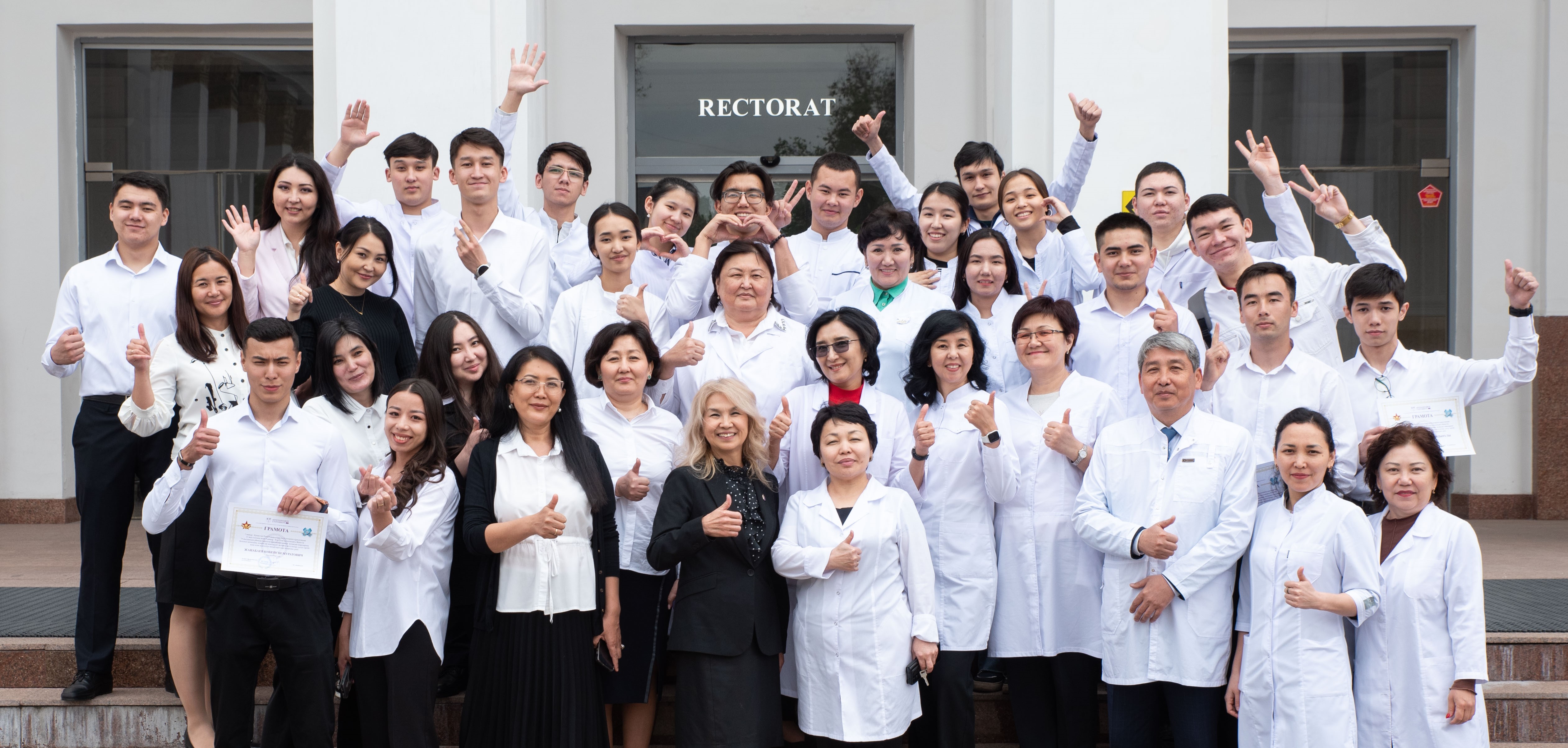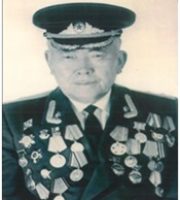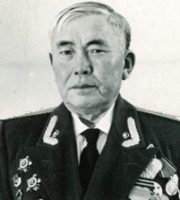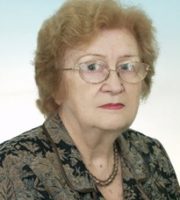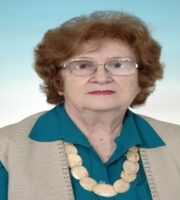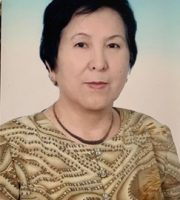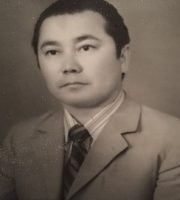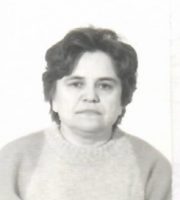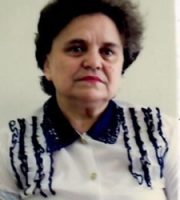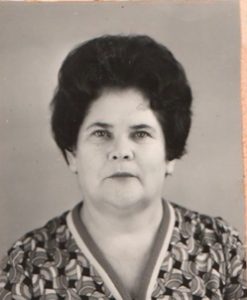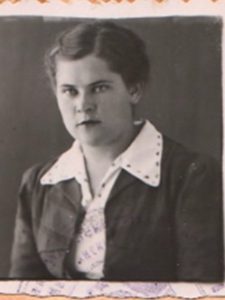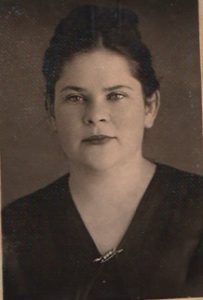Kuanish Amanbaevich Makirov
Doctor of Medical Sciences, Professor, Colonel of the Medical Service, Veteran of the Great Patriotic War, Participant in the Preparation of the Tehran Conference
(June 15, 1910- October 05,1986)
Biography
Kuanish Amanbaevich Makirov was born on June 15, 1910, in Aul No. 1, Khobdinsky District, Aktobe Region, into a peasant family of poor farmers. He began his working life at the age of 13 as an assistant herder. After graduating from school in 1930, he enrolled at the 1st Moscow Medical Institute with a recommendation from the Kyzylorda Regional Committee of the Komsomol. Continuing his education at the S.M. Kirov Military Medical Academy in Leningrad, which he graduated from in 1935, Makirov began his service in the Red Army. He rose from military doctor to the head of the medical service of a regiment. He became the first doctor of the Kazakh cavalry regiment.
Military Service and Contribution to the Great Patriotic War
During the Great Patriotic War, K.A. Makirov held responsible positions in the General Staff of the Soviet Armed Forces. His duties included medical and sanitary support for the Soviet troops, analyzing epidemiological risks, collecting information about enemy military groupings, and combating infectious diseases among both military personnel and civilians.
K.A. Makirov participated in the preparation of the Tehran Conference in 1943, where he ensured sanitary and epidemiological safety. During the battles near Warsaw in 1944, he sustained a severe injury.
(https://tengrinews.kz/pobediteli/veteran/1528/)
For his achievements, he was awarded:
- Order of the Red Banner of Combat,
- Two Orders of the Patriotic War 1st Class,
- Order of the Red Star,
- Numerous medals.
Scientific and Pedagogical Activities
He dedicated many years to teaching in medical higher education institutions. After his demobilization in 1959, Makirov devoted himself to scientific and teaching work. He taught at the 2nd Moscow Medical Institute, holding the positions of senior lecturer and deputy dean. In 1960, K.A. Makirov began working at Kazakhstan State Medical Institute. From 1963 to 1986, he headed the Department of Microbiology at Almaty State Medical University, was elected secretary of the party committee at Almaty State Medical University, and served as the vice-rector for scientific work at the institute. Kuanish Amanbaevich was not a desk-bound scholar. As part of various commissions of the Ministry of Health of the Kazakh Soviet Socialist Republics, he repeatedly traveled to different epidemic hotspots, where he demonstrated his ability to organize anti-epidemic measures to protect the population. Based on the results of his research, K.A. Makirov made valuable suggestions to the Ministry of Health of the Kazakh Soviet Socialist Republics, leading to decisions by the Republic’s government aimed at improving healthcare in the country. He delivered captivating and informative lectures in districts and regions of our republic. In 1967, he visited remote areas of Almaty, Aktobe, Semipalatinsk, and Karaganda regions. K.A. Makirov actively participated in the elimination of epidemic outbreaks, demonstrating outstanding organizational skills.
Scientific Contribution
Kuanish Amanbaevich is the author of over 130 scientific works, including 6 monographs, a textbook on military epidemiology, a microbiology and virology textbook, and a microbiology textbook for medical university students. Under his guidance, 25 candidates and doctors of sciences were trained. Kuanish Amanbaevich Makirov left a profound mark in the history of medicine and science, serving as a model of selfless dedication to his homeland and his work. He is remembered as an outstanding scholar, educator, and patriot. His scientific works and ideas continue to evolve in the research of his students and colleagues from the Department of Microbiology, Virology, and Immunology at the S.D. Asfendiyarov Kazakh National Medical University.
Kotova Albina Leonovna
Doctor of Medical Sciences, Professor, founder of the Kazakh school of microbiology
(July 28, 1932-May 8, 2019)
Biography and Contribution
Albina Leonovna Kotova is an outstanding scientist, educator, organizer, and mentor, and the founder of the modern school of microbiology in Kazakhstan. She was born on July 28, 1932. Throughout her life, she dedicated herself to the development of microbiology, medical-biological research, and the educational system in the Republic of Kazakhstan.
Professional Activities
Albina Leonovna organized microbiology departments at universities in Semey, Astana, as well as at medical faculties in Kentau and Kyzylorda. Thanks to her efforts, model programs and state standards for microbiology were developed and implemented across all medical universities in the country. She initiated the introduction of courses in «Clinical Microbiology» and «Medical Parasitology» to educate students and improve the qualifications of faculty members. For more than 20 years, she headed the microbiological laboratory at the Central Research Institute of the Almaty State Medical University (now KazNMU named after S.D. Asfendiyarov). During this time, the laboratory facilitated the preparation of 112 dissertations, including doctoral and candidate theses.
Scientific and Educational Activities
Albina Leonovna has trained 58 highly qualified specialists: 10 doctors and 48 candidates of medical sciences. She founded the «School of Young Microbiologists» and initiated the first annual student conference on HIV/AIDS in Kazakhstan. In 2002, she proposed and organized the conference «Biosafety and the Fight Against Bioterrorism»
A.L.Kotova led numerous research projects at the national and international levels, studying pathogens of infectious diseases, including in environmentally disadvantaged areas.
Achievements and Awards
- 1980 – Badge «Excellence in Health Care of the Union of Soviet Socialist Republics»
- 1997 – Badge «Excellence in Health Care of the Republic of Kazakhstan»
- 2001 – Medal «10 Years of Independence of the Republic of Kazakhstan»
- 1997–1999 – Laureate of the State Scholarship «For Outstanding Contribution to the Development of Science and Technology»
- 2006 – Golden Medal of KazNMU
- 2012 – Medal «Shapagat»
- Nomination «Person of Action» for establishing the school of Kazakhstan microbiologists.
Legacy
Albina Leonovna left a lasting mark on the history of science and medicine in Kazakhstan. Her students and followers continue to develop her ideas, making significant contributions to epidemiology, the prevention, and diagnosis of infectious diseases. Her name is forever linked to the development of microbiology in the country and the nurturing of new generations of scientists and medical professionals.
Katira Umirzakovna Urumbaeva
Professor, candidate of medical sciences, teacher, mentor, organizer of medical education
(October 14, 1940 – December 7, 2023)
Biography
Katira Umirzakovna Urumbaeva, candidate of medical sciences, teacher, mentor, organizer of medical education. She was born in 1940 in the city of Chimkent. In 1964, she graduated from the Faculty of Medicine of the Almaty State Medical Institute. After completing postgraduate studies at the Department of Microbiology, Virology, and Immunology, she defended her PhD dissertation on the topic «Materials for microbiological evaluation of the soil of Alma-Ata city» under the scientific supervision of professor K.A. Makirov.
Professional Activity
Katira Umirzakovna began her professional career in 1967 as an assistant at the Department of Microbiology, Virology, and Immunology. In 1985, she became an associate professor at the same department, and in 2001, she was awarded the academic title of Professor. Over the years, she actively participated in the organizational and scientific-methodical work of the institute:
From 1972 to 1975, she worked in the trade union bureau of the medical faculty and simultaneously served as the trade union organizer for the department (1972–1980) and as a member of the institute’s trade union committee (1976–1980).
From 1981 to 1988, she held the position of Deputy Dean of the Medical Faculty.
From 1988 to 2008, she served as the Scientific Secretary of KazNMU.
In 1995, she organized and headed the Testing Center, which she led until 1998.
From 2000 to 2008, she continued her work as the Dean of the Medical Faculty.
From 2014 to 2016, she was the Chair of the Veterans Council of the University.
Katira U. Urumbaeva served as the responsible secretary of the admissions committee and the secretary of the regional commission for organizing entrance exam testing for many years.
At the Department of Microbiology, from 1972 to 1975, she was responsible for the methodological support of practical classes in general and applied microbiology. She was one of the first at the University to implement interactive learning methods (TBL) in teaching the topic “Intestinal Infections».
While working at the department, Katira Umirzakovna was responsible for the Museum of Living Cultures (1980–1988), for the methodological support of classes in the Sanitary-Hygienic Department (1990–1995), and in the Faculty of Dentistry (1998–2000). Throughout her years at the department, she led the School of Mentors for young teachers.
Scientific Activity
Katira U. Urumbaeva is the author of 72 methodological guidelines and developments for teachers and students, co-author of 5 educational and methodological manuals, and the author of 98 scientific articles. She was a member of the methodological commission for medical and biological disciplines, a member of the problem commission on microbiology and infectious diseases, a member of the university’s scientific council, and a member of the competition commission.
Awards and Achievements
For her conscientious work and preparation of highly qualified specialists, she was awarded:
– The Badge of Honor «Excellence in Health Care of the Union of Soviet Socialist Republics»
– The Badge of Honor «Excellence in Health Care of the Republic of Kazakhstan»
– The Badge of Honor «Excellence in Higher Education»
– The Badge of Honor «10 Years of the Constitution of the Republic of Kazakhstan»
– The Badge of Honor «Honored Worker of Education of the Republic of Kazakhstan»
– Medals: «Veteran of Labor», «Shock Worker of Communist Labor» and «For Active Work in the Trade Union»
Katira Umirzakovna holds the title «Excellence in Public Education of the Kazakh Soviet Socialist Republics». Her work has been recognized with Certificates of Honor and Letters of Appreciation from the Ministry of Education of the Union of Soviet Socialist Republics and the Rector.
Kulaqmet Qudaibengenuly
Professor, candidate of medical sciences
(May 20, 1939 – October 25, 2016)
Biography and Contribution
In 1962, he graduated with honors from the Sanitary and Hygienic Faculty of the Almaty State Medical Institute, which later became KazNMU. In the same year, by the decision of the Academic Council of the institute, he was recommended for postgraduate studies. In 1967, he defended his candidate dissertation on the topic «Materials for the regional epidemiology of toxoplasmosis in Kazakhstan» under the scientific supervision of professor K.A. Makirov. After completing his postgraduate studies, he worked as an assistant at the Department of Microbiology, Virology, and Immunology. In 1975, he was elected as an associate professor at the same department at KazNMU named after S.D. Asfendiyarov. In 2001, he was appointed acting head of the Department of Microbiology, Virology, and Immunology. In 2002, he was awarded the academic title of Professor of the Kazakh National Medical University.
Professional Activity
In his administrative work, K. Qudaibengenuly held the position of Deputy Chairman of the Trade Union Committee and the first Dean of the Kazakh Department at the Almaty State Medical Institute. He was a member of the council and Deputy Chairman of the Faculty Bureau of the «Qazaq language» Society at the Sanitary and Hygienic Faculty, as well as a member of the council of the Medical and Preventive Faculty and the Central Methodological Commission (CMC) for Fundamental Disciplines. Additionally, he served as an independent expert for the State Educational Standards of the Republic of Kazakhstan. As a member of the Terminology Commission for the Development of the State Language in Health Care under the Ministry of Health of the Republic of Kazakhstan, he actively contributed to the improvement of medical terminology in the state language.
Scientific Activity
- Qudaibengenuly was the author of 185 scientific articles and published three popular science books on relevant issues of infectious pathology. He voluntarily organized the electron microscopy laboratory at the Central Scientific Research Laboratory (CSRL) of the university and headed it, directly assisting in the completion of fragments for more than 10 dissertation works. Under his guidance, textbooks and methodological guidelines for students and teachers were prepared, as well as a collection of test questions in the Kazakh language. Together with other professors of KazNMU, he was the first to publish textbooks in the Kazakh language, «Medical Parasitology» and «Medical Microbiology» for students of medical universities. He was the responsible editor and fully prepared the manuscript for the translation from Russian to Kazakh of the two-volume textbook «Microbiology, Virology, and Immunology» published under the editorship of Academician V.V. Zverev of the Russian Academy of Medical Sciences (RAMS) and Professor M.N. Boychenko. K. Qudaibengenuly was also the compiler of the two-volume fundamental practical guide «Standards and Algorithms for Infectious Disease Management» intended for practicing doctors and students of medical institutions. He also wrote several sections in the two-volume textbook «Epidemiology». K. Qudaibengenuly was a member of the editorial board and compiler of two almanacs, five scientific-methodological collections of the university, and four medical dictionaries (Russian-Kazakh and English-Kazakh). He actively collaborated with the editorial staff of the «Qazaq National Encyclopedia» and prepared more than 48 articles on relevant terms in medical microbiology, virology, immunology, epidemiology, and infectious diseases.
Achievements and Awards
-Medal «Veteran of Labor»
-Badge «Winner of Socialist Competition»
-Badge «Excellence in Health Care of the Union of Soviet Socialist Republics » for active participation in the World Health Organization (WHO) conference held in Almaty
-Badge «Excellence in Health Care of the Republic of Kazakhstan» for many years of scientific and pedagogical activity
-Recognized with letters of appreciation, cash awards, and honorary certificates from the executive committees of Kokshetau and Almaty regions, regional committees, the Ministry of Health of the Republic of Kazakhstan, as well as the Rector of KazNMU
-Awarded the «Golden Medal» of KazNMU named after S.D. Asfendiyarov for contributions to the development of medical education in the Republic of Kazakhstan
-Medal «Öte Boydaq» for significant contributions to the development of traditional medicine in the Republic of Kazakhstan
-Anniversary Medal «15 Years of the Union of Folk Healers of the Republic of Kazakhstan»
Significance of the Personality
Kulaqmet Qudaibengenuly made a significant contribution to the development of medical science and education in Kazakhstan. His work spanned a wide range of areas, from teaching to the enhancement of medical terminology in the state language, which contributed to strengthening the scientific and educational potential of the country. His efforts, including the first textbooks on medical microbiology and parasitology in the Kazakh language, became the foundation for training new generations of medical specialists. Thanks to his efforts, practical guides, methodological instructions, and textbooks were developed, many of which are still used in educational institutions. As a scientist, he left behind a unique scientific legacy – 185 scientific publications, several books, and dozens of articles for the national encyclopedia. Under his guidance, numerous dissertation works were completed, demonstrating his ability to inspire and mentor young scientists. His contribution to the development of medicine and healthcare was highly appreciated with numerous awards and honors. However, Kulaqmet Qudaibengenuly’s greatest legacy remains his dedication to his work, his commitment to advancing science in his native language, and the influence he had on thousands of students, colleagues, and followers. His name is rightfully inscribed in the history of medical science in Kazakhstan.
Ludmila Ivanovna Fokhridina
Doctor of Medical Sciences, Professor, Educator
(October 17, 1939 – February 18, 2016)
Biography
Ludmila Ivanovna Fokhridina was a Doctor of Medical Sciences, Professor, and Educator. She was born on October 17, 1939, in the city of Kerchinsk, Chita Region. In 1959, she graduated from secondary school in the city of Alma-Ata. In 1965, she completed her studies at the Alma-Ata State Medical Institute, specializing in Pediatrics. From August 1965 to November 1967, she worked as a pediatrician at the regional children’s hospital in Koktal-Arasan, Panfilov District, Taldykorgan Region. She was of Russian ethnicity.
Professional Activity
In 1967, Ludmila Ivanovna entered the graduate school at the Department of Microbiology of the Alma-Ata State Medical Institute. In 1970, she began working as an assistant at the Department of Microbiology at the Almaty State Medical Institute. In 1971, she defended her candidate dissertation on the topic “Materials for the Study of the Role of Staphylococci and Streptococci in the Etiology of Nephritis.” In 1995, Ludmila Ivanovna defended her doctoral dissertation on «Microbiological aspects of chlamydiosis» with Professor A.L. Kotova as her scientific advisor. Since then, she has held the position of Professor at the Department of Microbiology. Ludmila Ivanovna also actively participated in organizing student city scientific conferences, including topics related to HIV/AIDS.
Scientific Activity
Under the guidance of Ludmila Ivanovna Fokhridina, two candidate dissertations were prepared and successfully defended. She is the author of 103 scientific publications, including 31 works published after defending her doctoral dissertation. Ludmila Ivanovna also developed teaching materials on general and special virology. Additionally, she compiled methodological materials, including:
– «Methods of laboratory diagnosis of chlamydiosis and common mistakes in their performance»
– «Diagnosis of Chlamydial-Bacterial Infections»
– «Issues of general and special virology»
She also revised the methodological guidelines on the topic «Viral infections» and prepared test questions for the section «Infection and Immunity»
Awards
For her diligent work, Ludmila Ivanovna was awarded honorary certificates and letters of appreciation.
Nina Sergeevna Evdokimova
Doctor of medical sciences, professor, educator, bacteriologist, plague specialist
(May 3, 1922 – December 14, 1997)
Biography
Nina Sergeevna Evdokimova was a Doctor of Medical Sciences, Professor, Educator, Bacteriologist, and Plague Specialist. She was born on May 3, 1922, in the Troitsky Saltworks, Toseevsky District, Krasnoyarsk Krai, into a family of civil servants. In 1930, she entered elementary school at the “Makarak” gold mine in the Novosibirsk region. In 1937, her family moved to Alma-Ata, where they lived until 1939, after which they relocated to Semipalatinsk, where Nina Sergeevna graduated from high school in 1940. From 1940 to 1944, Nina Sergeevna studied at the Alma-Ata Medical Institute. She was of Russian ethnicity.
Professional Activity
After completing her studies at the Kazakh State Medical Institute, Nina Sergeevna was sent to work in the Uyghur district of the Almaty region as part of the anti-plague service. In 1945, she attended a six-month course on the diagnosis of particularly dangerous infections at the Saratov «Mikrob» Institute, earning the qualification of bacteriologist and plague specialist. She was proficient in modern microbiological diagnostic methods. From 1946, Nina Sergeevna worked as an assistant at the Department of Microbiology of the Kazakh State Medical Institute, and from September 1955, she served as an associate professor. In 1949, she graduated from evening courses at the University of Marxism-Leninism. In 1953, she defended her candidate dissertation on the topic «Characteristics of hemolytic streptococcus isolated from scarlet fever patients in Alma-Ata» and on December 15, 1958, she was awarded the degree of Candidate of Medical Sciences. Nina Sergeevna actively participated in the elimination of plague epidemics in the Aral Sea region. In 1984, she defended her doctoral dissertation on «Epidemiology and prevention of ornithosis in professional and domestic infections» after which she was appointed as a Professor at the Department of Microbiology. At the department, she led methodological work, served as the deputy chair of the trade union committee, was a member of the party bureau of the institute, and directed cultural and mass activities.
Scientific Activity
Nina Sergeevna Evdokimova is the author of 72 scientific papers published in central and national journals. She also published two methodological guidelines, brochures, and memoranda. The results of her research on the diagnosis and prevention of ornithosis were implemented in practice in Kazakhstan, as well as in the Azerbaijan and Tajik Soviet Socialist Republics.
Awards
-Medal «For Diligent Labor in the Great Patriotic War of 1941–1945»
-Badge «Excellence in Health»
-Certificate of the Supreme Soviet of the Kazakh Soviet Socialist Republics
-Honorary Certificate from the Directorate of the Kazakh State Medical Institute
-Several letters of appreciation by order of the director of KazNMI
-Title of Shock Worker of Communist Labor
